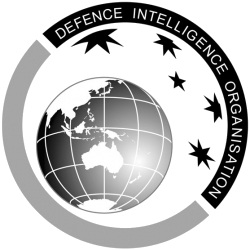Related Research Articles
The Australian Signals Directorate (ASD), formerly the Defence Signals Directorate (DSD), is the federal statutory agency in the Australian Government responsible for foreign signals intelligence, support to military operations, cyber warfare, and information security. ASD is part of the Australian Intelligence Community. ASD's role within UKUSA Agreement is to monitor signals intelligence ("SIGINT") in South and East Asia. The ASD also houses the Australian Cyber Security Centre.

The Office of National Assessments (ONA) was an Australian statutory intelligence agency established by the Office of National Assessments Act 1977 as an independent statutory body directly accountable to the Prime Minister of Australia as a portfolio agency of the Department of the Prime Minister and Cabinet. ONA provided all-source assessments on international political, strategic and economic developments to the Prime Minister and the National Security Committee of Cabinet. ONA also played a coordination role in the Australian Intelligence Community through evaluating foreign intelligence products, convening the National Intelligence Coordination Committee, and developing relationships with intelligence agencies around the world.

Defence Intelligence (DI) is an organisation within the United Kingdom intelligence community which focuses on gathering and analysing military intelligence. It differs from the UK's intelligence agencies in that it is an integral part of a government department – the Ministry of Defence (MoD) – rather than a stand-alone organisation. The organisation employs a mixture of civilian and military staff and is funded within the UK's defence budget. The organisation was formerly known as the Defence Intelligence Staff (DIS), but changed its name in 2009.

The Directorate-General for External Security is France's foreign intelligence agency, equivalent to the British MI6 and the American CIA, established on 2 April 1982. The DGSE safeguards French national security through intelligence gathering and conducting paramilitary and counterintelligence operations abroad, as well as economic espionage. It is headquartered in the 20th arrondissement of Paris.

The Government Communications Security Bureau (GCSB) is the public-service department of New Zealand charged with promoting New Zealand's national security by collecting and analysing information of an intelligence nature. The GCSB is considered to be New Zealand's most powerful intelligence agency, and has been alleged to have conducted more espionage and data collection than the country's primary intelligence agency, the less funded NZSIS. This has at times proven controversial, although the GCSB does not have the baggage of criticism attached to it for a perceived failure to be effective like the NZSIS does. The GCSB is considered an equivalent of GCHQ in the United Kingdom or the NSA in the United States.

The Defence Intelligence Organisation (DIO) is an Australian government military intelligence agency responsible for strategic intelligence and technical intelligence assessments, advising defence and government decision-making on national security and international security issues, and the planning and conduct of Australian Defence Force operations. The DIO does not collect intelligence or conduct covert action, but works on defence economics, transnational terrorism, and WMD.
The Defence Strategic Policy and Intelligence Group (SP&I) of the Australian Government Department of Defence is responsible for defence diplomacy, strategic policy, international security, and military intelligence co-ordination and advice to the Prime Minister of Australia, Minister for Defence, Secretary of the Department of Defence, and Chief of the Defence Force. The Defence Strategic Policy and Intelligence Group is led by the Deputy Secretary for Strategic Policy and Intelligence and comprises three policy divisions and two intelligence agencies.
The Defence Intelligence Division of the South African National Defence Force is the primary military intelligence agency of South Africa which came into being on 27 April 1994. The other intelligence agencies of the country are:

The Danish Defence Intelligence Service, DDIS, is a Danish intelligence agency, responsible for Denmark's foreign intelligence, as well as being the Danish military intelligence service. DDIS is an agency under the Ministry of Defence and works under the responsibility of the Minister of Defence. It is housed at Kastellet, Copenhagen.

The Directorate General of Forces Intelligence, commonly known by its acronym DGFI, is the defense intelligence agency of the Bangladesh Armed Forces, tasked with collection, collation and evaluation of strategic and topographic information, primarily through human intelligence (HUMINT). As one of the principal members of the Bangladesh intelligence community, the DGFI reports to the Director-General under the executive authority of the head of government, the Prime Minister, and is primarily focused on providing intelligence for the Prime Minister, the Cabinet of Bangladesh, and the Armed Forces of Bangladesh.
The Australian Intelligence Community (AIC) and the National Intelligence Community (NIC) or National Security Community of the Australian Government are the collectives of statutory intelligence agencies, policy departments, and other government agencies concerned with protecting and advancing the national security and national interests of the Commonwealth of Australia. The intelligence and security agencies of the Australian Government have evolved since the Second World War and the Cold War and saw transformation and expansion during the Global War on Terrorism with military deployments in Afghanistan, Iraq and against ISIS in Syria. Key international and national security issues for the Australian Intelligence Community include terrorism and violent extremism, cybersecurity, transnational crime, the rise of China, and Pacific regional security.
New Zealand's intelligence agencies and units have existed, with some interruption, since World War II. At present, New Zealand's intelligence community has approximately 550 employees, and has a combined budget of around NZ$145 million.

The Directorate of Military Intelligence is the military intelligence branch of the Defence Forces, the Irish armed forces, and the national intelligence service of Ireland. The organisation has responsibility for the safety and security of the Irish Defence Forces, its personnel, and supporting the national security of Ireland. The directorate operates domestic and foreign intelligence sections, providing intelligence to the Government of Ireland concerning threats to the security of the state and the national interest from internal and external sources.
The Agence Nationale de Renseignements (ANR) is a government intelligence agency of the Democratic Republic of the Congo (DRC). The role of the agency is to ensure "internal security and external security" of the state. The agency was strongly criticized for the disrespect of human rights by several organisations. Inzun Kakiak has led the agency since 2019.

The State Intelligence Service (SIS) is an intelligence agency of the Sri Lankan government. It is the primary civilian intelligence agency of Sri Lanka and is responsible for both internal and external intelligence-gathering. It comes under the purview of the Ministry of Defence. The agency was originally named National Intelligence Bureau.
The Government of the United Kingdom maintains several intelligence agencies that deal with secret intelligence. These agencies are responsible for collecting, analysing and exploiting foreign and domestic intelligence, providing military intelligence, and performing espionage and counter-espionage. Their intelligence assessments contribute to the conduct of the foreign relations of the United Kingdom, maintaining the national security of the United Kingdom, military planning, public safety, and law enforcement in the United Kingdom. The four main agencies are the Secret Intelligence Service, the Security Service (MI5), the Government Communications Headquarters (GCHQ) and Defence Intelligence (DI). The agencies are organised under three government departments, the Foreign Office, the Home Office and the Ministry of Defence.
DDIS may refer to:
References
- ↑ "Time to merge agencies under one director". New Zealand Herald. 22 July 2013. Retrieved 15 October 2013.
- 1 2 "An overview". Department of the Prime Minister and Cabinet (New Zealand). Archived from the original on 13 June 2013. Retrieved 15 October 2013.
- ↑ Palmer, Geoffrey W. R.; Hill, Kim (2002). Constitutional Conversations: Geoffrey Palmer Talks to Kim Hill on National Radio 1994-2001. Victoria University Press. p. 264. ISBN 978-0-86473-445-7 . Retrieved 12 November 2013.